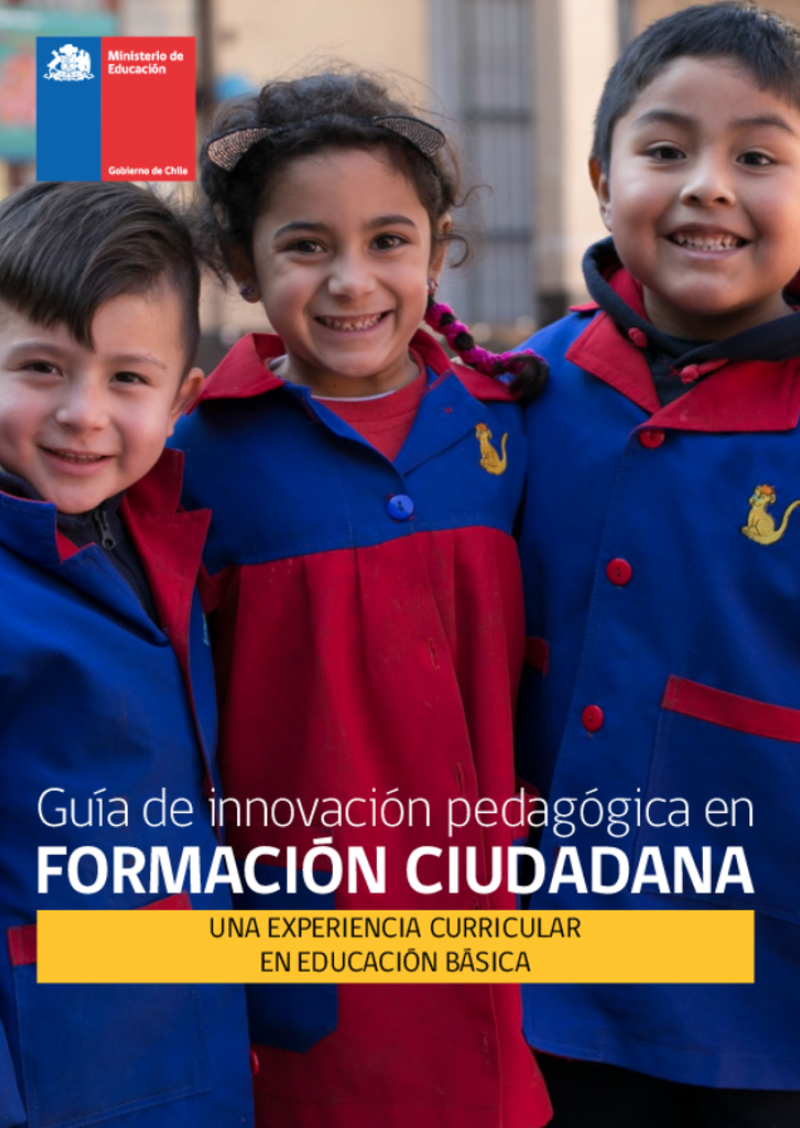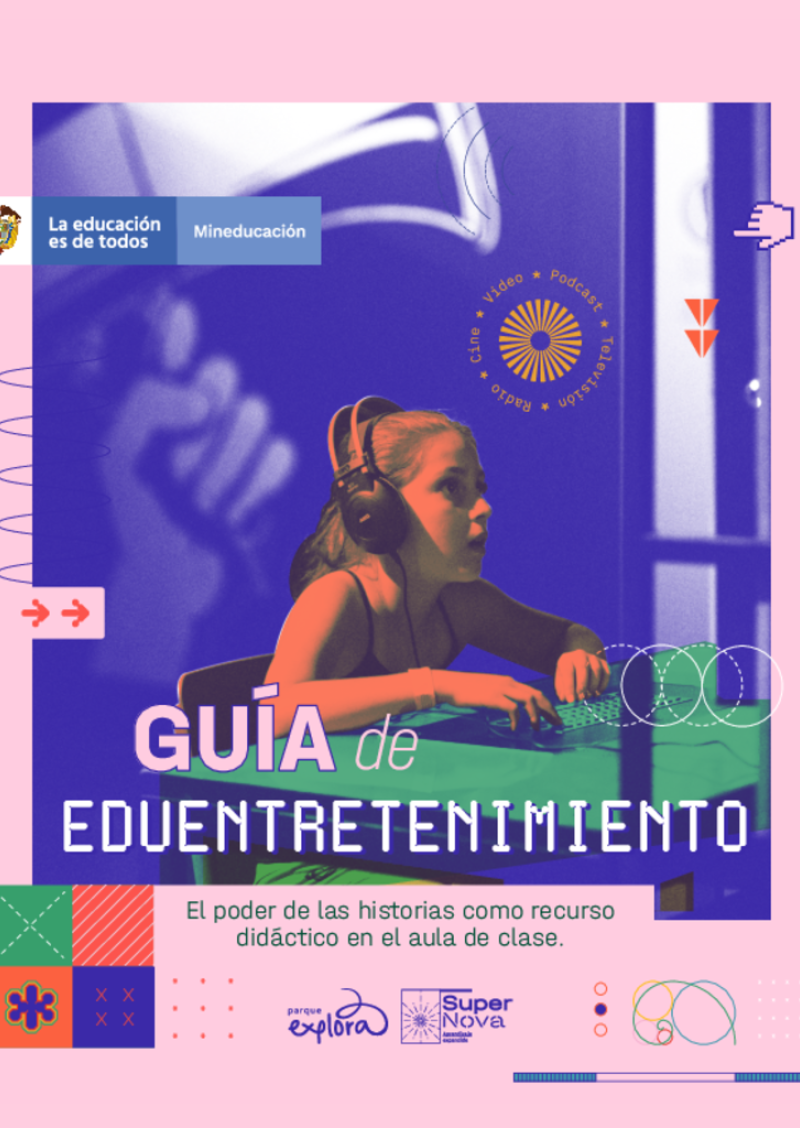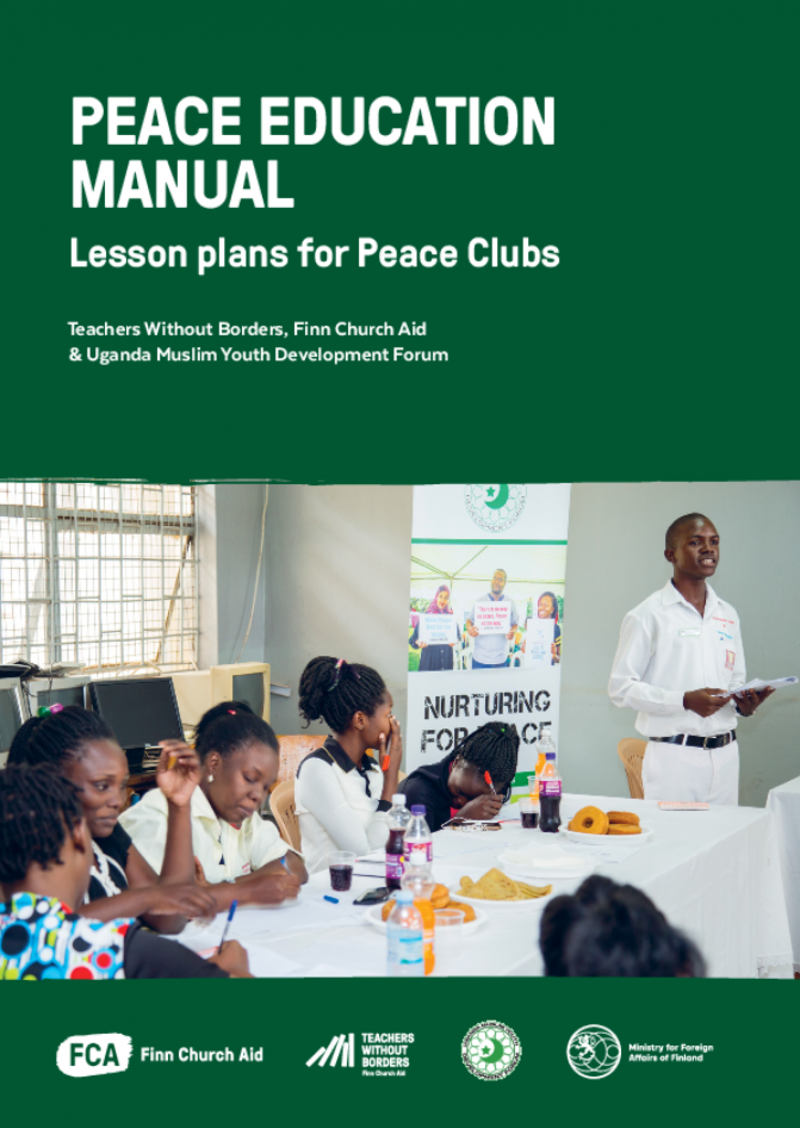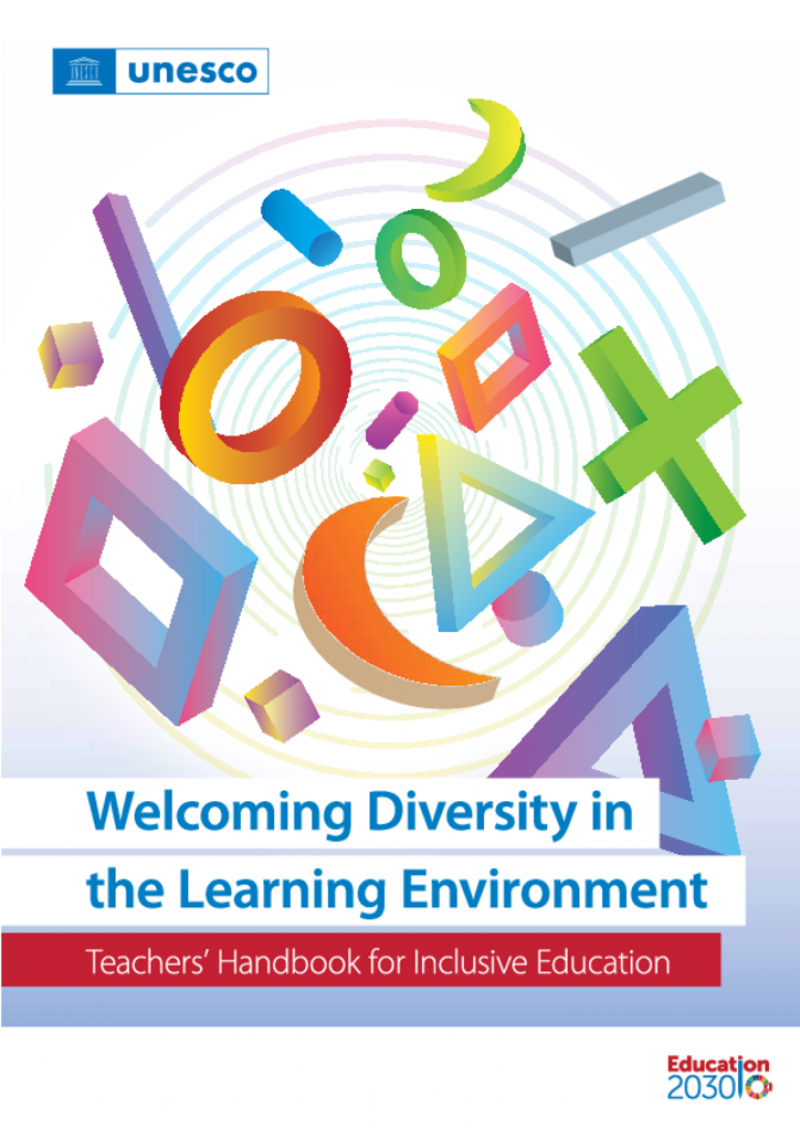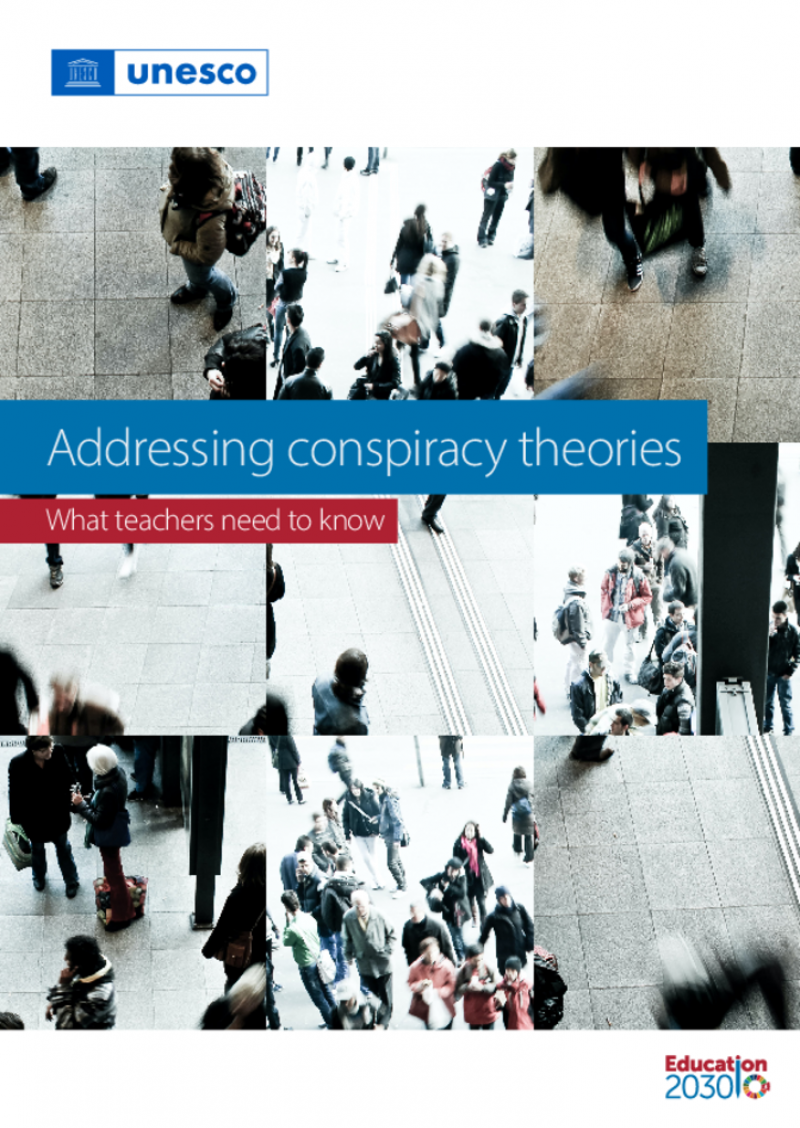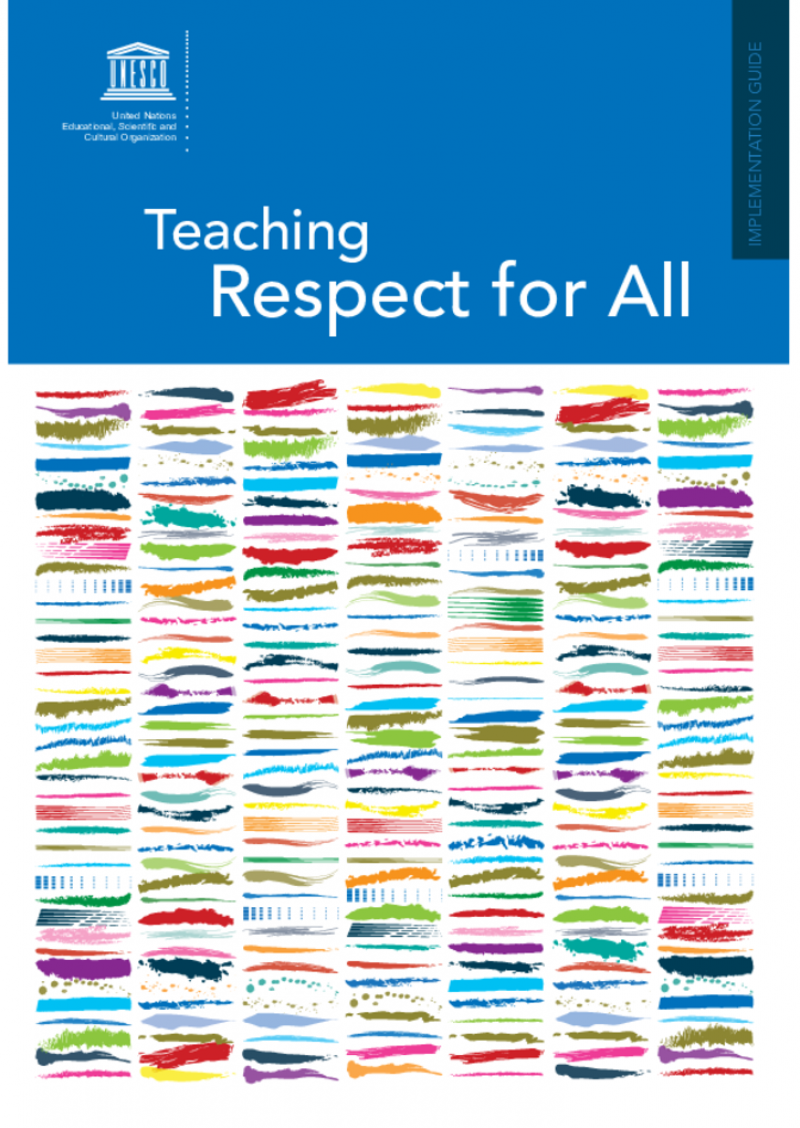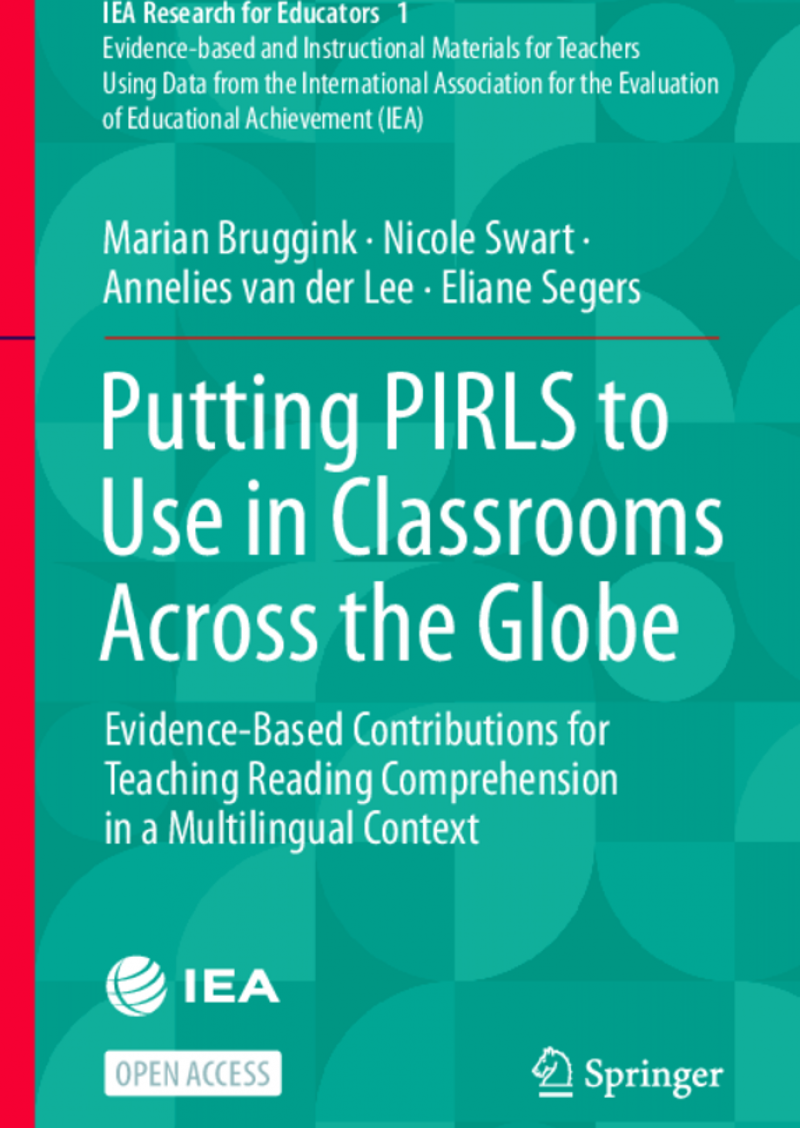Teacher Resource Centre
Displaying 1 - 20 of 22
Aprender haciendo con experiencias etnoeducativas
Esta guía a destinación de los docentes busca implementar la educación intercultural bilingüe, enfocándose en la etnoeducación afroecuatoriana. Ofrece ejemplos prácticos, orientaciones metodológicas y estrategias para ajustar los contenidos curriculares. Además, promueve la formación continua de docentes y la participación comunitaria, fortaleciendo la identidad cultural y la memoria colectiva. También sugiere el uso de herramientas tecnológicas y materiales didácticos para enriquecer el aprendizaje.
Guía de innovación pedagógica en formación ciudadana
Esta guía ofrece a los docentes herramientas y estrategias para comprender y enseñar el concepto abstracto de ciudadanía en el aula. Proporciona recursos pedagógicos, actividades prácticas y ejemplos concretos para ayudar a los estudiantes a internalizar valores cívicos y democráticos. Además, incluye planes de lecciones y evaluaciones que facilitan para el docente la integración del tema en su práctica, promoviendo una educación integral y participativa. Con esta guía, los docentes pueden fomentar una comprensión profunda y crítica de la ciudadanía entre sus alumnos.
Ciencias de la computación para el aula - Manual para docentes (Primer ciclo primaria)
Este recurso incluye secuencias didácticas con actividades para realizar con los alumnos, así como fichas imprimibles con ejercicios. También contiene todas las instrucciones necesarias para que el docente pueda acompañar a los alumnos en la realización de estas actividades. El objetivo de estos recursos es enseñar a niñas y niños el funcionamiento de los computadores y las tecnologías digitales. Si este recurso ha sido concebido específicamente para el sistema educativo argentino, también se puede adaptar a otros contextos educativos hispanófonos. Se realizaron manuales similares para secundo ciclo de primaria, y ciclo secundario, que se podrán encontrar en este enlace.
Guía de eduentretenimiento – El poder de las historias como recurso didáctico en el aula de clase
El eduentretenimiento es una metodología de comunicación definida por la UNESCO que se basa en narraciones como medio de transmisión del conocimiento. El objetivo es cautivar la atención de la audiencia para generar empatía y emociones, reconocidas como marcadores de aprendizaje. Se trata de una guía para el docente sobre cómo movilizar este tipo de fuente con sus alumnos en el aula o en otros contextos. Contiene también una diversidad de recursos con enfoque en áreas STEM (ciencia, tecnología, ingeniería, matemáticas).
Activité pour apprendre à créer une Ressource Éducative Libre, étape par étape
Cette formation, proposée par la chaire UNESCO RELIA de l’université de Nantes, vise à créer une Ressource Éducative Libre en quelques étapes simples. Elle se concentre sur les aspects pratiques tels que les droits d’utilisation, les licences disponibles et les méthodes de partage des ressources. Cet atelier permet de travailler en autonomie à travers des cours et des activités pratiques.
Boîte à outils sur la politique européenne de protection de la nature
Cette boîte à outils sur la protection de la nature aide les élèves à comprendre l'importance de la biodiversité et les menaces pesant sur la nature en Europe. Elle aborde les actions de l'UE pour protéger les écosystèmes et encourage les élèves à s'impliquer. Organisée en quatre modules, elle propose des activités interactives qui favorisent la réflexion, la collaboration, et la sensibilisation à la nature. Les élèves sont invités à explorer la nature, comprendre les enjeux de conservation, et développer des compétences pour contribuer à un monde plus durable. Des ressources complémentaires sont également fournies.
Kit pédagogique - Idées, ressources, méthodes et activités pour l'éducation interculturelle informelle avec des adultes et des jeunes
Il s’agit de la réédition mise à jour d’un manuel originellement publié en 1995 dans le cadre de la Campagne Européenne de la Jeunesse contre le Racisme, la Xénophobie, l’Antisémitisme et l’Intolérance. Le document est pensé comme un outil accessible aux praticiens de l’éducation informelle auprès d’un public d’âge varié. Il est divisé en 2 parties : la première offre le contexte et le cadre pour aborder les activités et méthodes proposées dans la seconde partie. On y retrouve également une liste de documents écrits et audiovisuels en différentes langues parlées au sein de l’Europe mobilisable dans des cadres éducatifs.
Édubref n°22 - Enseigner, oui mais à deux ?
ÉduBref propose dans un format court et abordable de revenir sur des travaux et études universitaires sur les pratiques éducatives. Ici, l'autrice présente les récentes recherches sur l'enseignement à plusieurs afin de bousculer la vision persistante de l’enseignant seul face à la classe et de montrer les avantages que peut avoir l’enseignement partagé. Ces pratiques sont notamment abordées dans le cadre d’une éducation inclusive dans le contexte français.
Peace Education Manual. Lesson plans for Peace Clubs
This Peace Education Manual has been developed in collaboration with Finn Church Aid (FCA) Uganda, local partner Uganda Muslim Youth Development Forum (UMYDF) and Teachers Without Borders (TWB) Network Finland.
The manual was developed to strengthen the pedagogical and methodological quality of local peace clubs during the spring and summer of 2022. The contents of the manual were successfully piloted with more than 480 young people in eight lower secondary school peace clubs established and run by UMYDF with the support of FCA in Uganda. Two of the peace clubs are located in the Bidibidi Refugee Settlement, one of the largest refugee settlements in the world.
The material consists of 34 lessons plans and is primarily aimed for young people. The different sections and activities of the material can be used flexibly in training, clubs, or, for example, as individual lessons on peace building, socio-emotional skills, conflict resolution or cooperation skills. The exercises are functional, learner-centered and emphasize active participation of youth. The material is adaptable for use anywhere in the world.
FCA and UMYDF have been working together since 2016 in Uganda to promote the positive role of youth in conflict prevention and peacebuilding. In our work, peace education is defined as a holistic, multidisciplinary and transformative process that seeks to develop capacities that promote non-violent conflict resolution, respect for human rights and active participation.
ETF READY model
The European Training Foundation's READY model (Reference model for Educators' Activities and Development in the 21st century) offers a structured way to identify the professional practices and development needs of the 21st century educators.
Welcoming diversity in the learning environment: teachers' handbook for inclusive education
This teachers' handbook is intended to serve as a practical resource to help teachers and teacher educators to gain understanding of the multiple issues of inclusion in their day-to-day work and acquire competencies that facilitate inclusive pedagogy. The handbook is comprised of nine modules – each of which presents the conceptual discussion of key topics related to inclusion and diversity and features some promising case studies, instruments and approaches. It also provides a framework for ensuring learning continuity in the wake of crises and emergencies such as the COVID-19 pandemic, and deals with a range of topics aimed at building the capacities of teachers and teacher educators for recovery and resilience in education systems in the COVID-19 context.
Transformative pedagogy: a teachers’ guide for peace and resilience building in North Africa
This guide is designed to build the capacity of teachers so that they are informed and empowered in why and how to educate for peace-building. It offers an analysis of conflict, examines the role of ethics, expands on the elements of transformative pedagogy. It also provides practical tools to support learners’ active participation in shaping the world around them and assess learners’ understanding of peacebuilding concepts and skills, all while engaging the community.
Addressing conspiracy theories: what teachers need to know
This document intends to support educators limit the dissemination of conspiracy theories by responding to them when they are shared among learners or within the wider school community.
Teaching respect for all: implementation guide
This Teaching Respect for All Implementation Guide comprises a set of policy guidelines, questions for self-reflection, ideas and examples of learning activities to integrate Teaching Respect for All into all aspects of upper primary and lower secondary education, in an effort to counteract discrimination in and through education. It mainly targets policy makers, administrators/headteachers and formal and informal educators.
Part 2 targets headteachers and education NGO managers, suggesting key areas of intervention with a list of possible actions/activities and Part 3 targets teachers and describes methods of dealing with difficult topics such as racism and discrimination with learners as well as provides suggestions for possible entry points and topics to link the issues of respect for all with particular teaching subjects.
Cyberbullying on social media: an analysis of teachers’ unheard voices and coping strategies in Nepal
Teachers can be potential victims of cyberbullying, particularly targeted by their students at their workplaces.
This article explores teachers' individual coping strategies of sharing, ignoring and enhancing self-efficacy to handle technology strongly and confidently, and it concludes with the implications of collaborative coordination necessary for the development of strong policies and strict cyber laws for ensuring teachers’ cybersecurity in similar contexts.
Guidelines for teachers and educators on tackling disinformation and promoting digital literacy through education and training
These guidelines offer concrete, hands-on guidance for teachers and educators, primarily in primary and secondary education, to promote digital literacy and tackle disinformation.
They offer clear explanations of technical concepts, class-exercises for fact-checking, ways to encourgage "good" online habits and ways to assess students regarding their copetencie snt he field of digital literacy.
Teachers in crisis contexts peer coaching pack
In crisis contexts, where many teachers are untrained or undertrained, continued support is needed most; yet professional development in these settings is sporadic, of varied quality and often lacks any follow up support post-training. To address this lack of quality professional support for teachers in crisis contexts, the Teachers in Crisis Contexts Reference Group (TiCC) published the Training for Primary School Teachers in Crisis Contexts training pack in March 2016, a competency-based training designed specifically for teachers working in emergency settings.
Following the publication of the training pack, the TiCC began work on complementary Peer Coaching materials. Peer Coaching is continuous professional development (CPD) led by teachers for teachers. The continuous support teachers are able to provide to one another through Peer Coaching helps teachers make sustained positive changes in their teaching practice. Peer Coaching provides this support through two main activities: 1) Teacher Learning Circles (TLCs), and 2) Classroom Observations.
The main components include: The Facilitator’s Guide; Peer Coaching Toolkit, Level 1 - TLCs only; and Peer Coaching Toolkit, Level 2 - TLCs plus classroom observations.
Putting PIRLS to use in classrooms across the globe. Evidence-based contributions for teaching reading comprehension in a multilingual context
This book aims to bridge the gap between science and practice and help teachers transform the latest scientific insights regarding reading comprehension into didactic guidelines to use in everyday practice for all students. It consists of two parts: Part I, Reading Comprehension: From Research to Practical Teaching Guidelines, comprises three chapters and discusses the teaching of reading comprehension in general. In Part II, Teaching Reading Comprehension in a Multilingual Classroom, the focus is on multilingual students.
How to help students develop reading comprehension skills
This Teacher Snippet XL looks at five key principles for teaching reading comprehension as defined in Putting PIRLS to Use in Classrooms Across the Globe, the first volume of the Research for Educators Series and is illustrated with a text from IEA's PIRLS (Progress in International Reading and Literacy Study) 2016.

